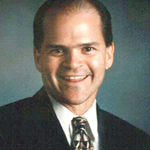Graebe: On a Quest for Better Therapies
The more Dr. Rick Graebe learns about his patient’s vision problems, the more he wants to learn about fixing them.
A self-described “restless intellect,” Dr. Graebe is a behavioral optometrist and the owner of Family Vision Center and Children’s Vision and Learning Center of Versailles.
Dr. Graebe’s coast-to-coast pursuit of continuing education and outside-the-box therapies has resulted in better outcomes for his patients.
These therapies include Vision Therapy, sports vision therapy, light therapy and corneal molding.
“When patients don’t respond to traditional treatments, I seek out other options,” Dr. Graebe said.
One of those options is Vision Therapy, which is a kind of physical therapy for the eyes, brain and body.
VT helps correct problems in eye alignment, eye tracking and teaming, eye focusing and movement, and visual processing. All of these can lead to problems with reading and learning.
With sports vision therapy, Dr. Graebe studied with Dr. Don Teig, who has worked with the New York Yankees and the Texas Rangers.
Sports vision therapy improves an athlete’s visual performance, resulting in improved balance, coordination, eye-hand coordination, reaction times and spatial awareness.
Syntonic or light therapy exposes the eyes to various colored lights to improve visual functional.
In corneal molding, patients sleep with specially designed molds that improve vision by reshaping the cornea.
Dr. Graebe’s curiosity also has resulted in technological advances at his office.
Visual Evoked Potential Testing is a painless, non-invasive procedure that can diagnose problems such as glaucoma up to six months before other tests might.
It can also detect visual problems in infants, Alzheimer’s patients and brain injury patients.
“With these tests we can start treatment sooner and preserve vision longer,” Dr. Graebe said.
Another state-of-the-art test that Dr. Graebe uses is Optical Coherence Tomography. This is a non-invasive technology that allows for a close-up view of the retina and is another way to detect diseases and conditions that might be missed with other tests.
Although training in these new technologies takes time and an investment in new equipment, Dr. Graebe thinks the rewards are worth it.
“These are all issues I see in my patients,” he said. “The reason I take all these classes is to give the best service to our patients. That’s our mission.”

